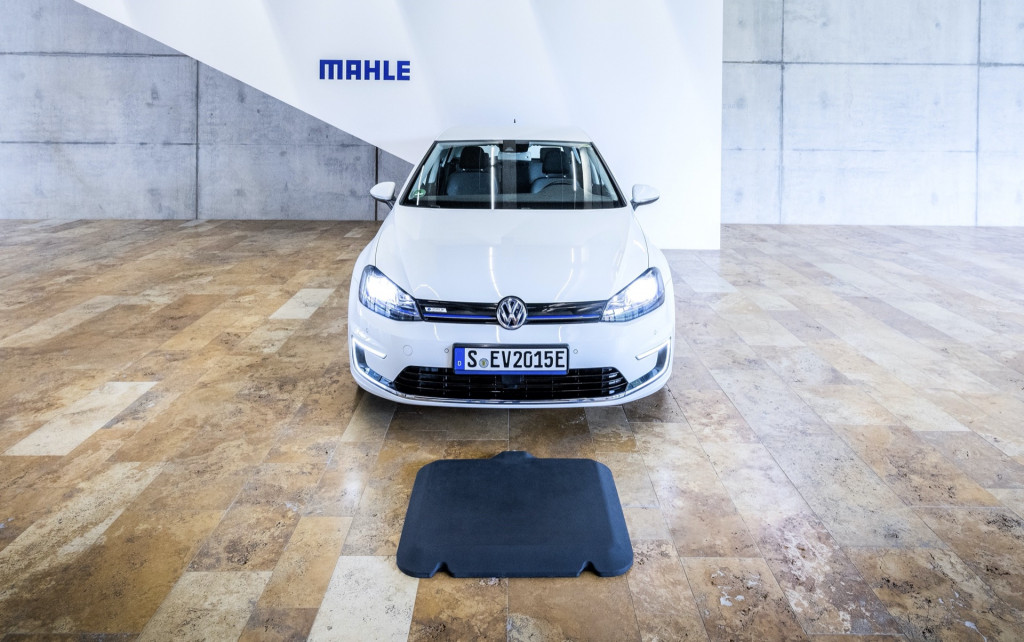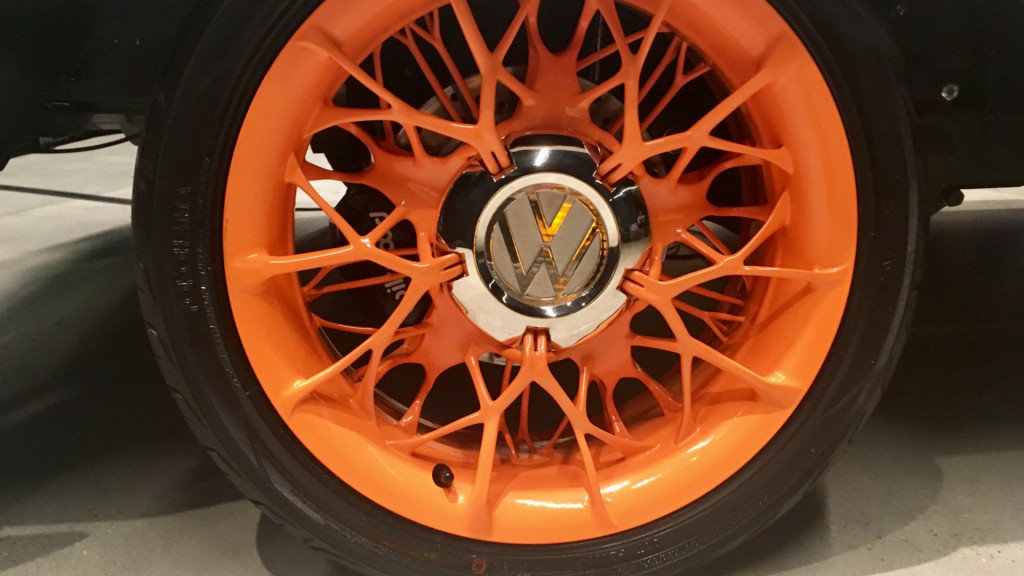Volkswagen on Tuesday confirmed that it’s engaged on wi-fi electrical automotive charging in its personal patented coil and charging pad design with silicon-carbide supplies, aimed partly towards every day storage use.
The undertaking goes nicely past that, although—into cost charges which might be at the moment on the speedy facet of DC fast-charging territory.
In keeping with Volkswagen, their unique try was within the type of an early 6.6-kw prototype, which might carry out at cost charges corresponding to dwelling Stage 2 (240-volt) methods. However in early trials along side a silicon carbide inverter, the system has carried out as much as 120 kw with a prototype unit. VW has a future objective of upping the system to 300 kw.

Mahle wi-fi charging
Thus far, the commercialization of wi-fi charging has principally appeared towards dwelling use. There are only some high-power methods in use or improvement, and most of them are focused towards use on bigger business autos. One exception is a wi-fi charging taxi check in Norway from Momentum Dynamics (InductEV).
The U.S. improvement of this Volkswagen system is being accomplished at VW’s Knoxville Innovation Hub, along side Oak Ridge Nationwide Lab (ORNL) and the College of Tennessee (UT). It takes benefit of the 2 tutorial establishments’ experience with high-power wi-fi charging and power-electronics optimization, respectively.
Along with the tease of future hands-free charging tech for its autos, VW boasted that supplies work being accomplished along side UT may assist increase the driving vary of future EVs. VW suggests it might be able to create a body for EV battery packs that cuts weight by 60%, with the usage of a 3D-printed resin-based construction. The fabric can provide sturdiness and power absorption past that of metal, in accordance with VW.

VW wi-fi charging tech
VW additionally confirmed the potential of utilizing paper-based merchandise (hot-pressed cellulose fiber strengthened thermoplastics) to interchange plastics in some automobile areas. Additional, it revealed U.S.-based analysis with light-weight supplies that could be put to make use of in “pickup beds and rugged parts” for future merchandise. In a course of referred to as “sizing,” it’s working to optimize the fiber-matrix-interface in sheet molding compound (SMC) processes for higher sturdiness. It kicked off that undertaking by producing a light-weight model of a VW Atlas tailgate that saved 13 kilos (35%) versus steel.

VW Sort 20 Microbus Idea wheel made with generative design
This type of devoted design method to weight financial savings is interrelated with the AI-based generative design method that VW has dabbled with in U.S.-based ideas and analysis within the current previous—together with its Sort 20 Microbus Idea that the corporate’s U.S. arm developed whereas the ID.Buzz electrical van was taking type in Germany.
Simply as many of those superior supplies begin with premium autos and supercars, do not essentially count on any of this tech—wi-fi charging included—to debut in VW’s most inexpensive EVs. However VW talked about that these U.S. researchers work with all Volkswagen Group manufacturers, together with Audi, Bentley, Lamborghini, Porsche, and VW, and the wi-fi charging particularly could show an excellent match for an EV with sufficient padding constructed into the value tag someday quickly.
